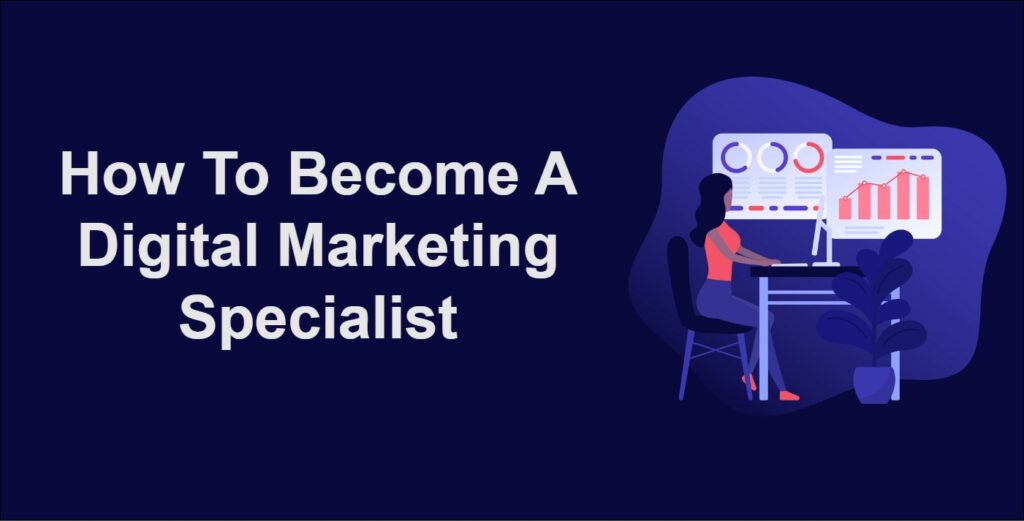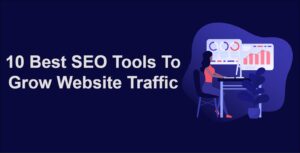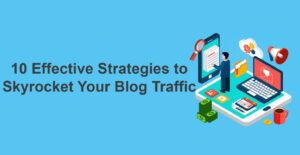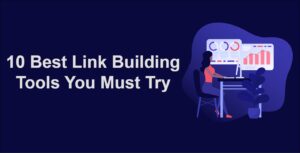In today’s fast-paced digital landscape, businesses are increasingly relying on digital marketing strategies to connect with their target audience, boost brand awareness, and drive conversions. As a result, the demand for skilled digital marketing specialists is on the rise.
If you’re passionate about digital marketing and want to pursue a career as a specialist in the field, this comprehensive guide will walk you through the steps to achieve your goal.
Becoming a digital marketing specialist requires a combination of education, practical experience, ongoing learning, and a genuine passion for the digital landscape. By following the steps outlined in this guide, you’ll be well on your way to building a successful career in this dynamic field.
Digital marketing is an ever-evolving industry, so stay curious, adaptable, and committed to continuous growth. As you gain expertise, you’ll have the opportunity to shape and influence the online presence of brands, connect with diverse audiences, and contribute to the overall success of businesses in the digital age.
Understanding the Role of a Digital Marketing Specialist
Before diving into the steps, it’s crucial to understand the role of a digital marketing specialist and the skills required to excel in this dynamic field.
1. Overview of a Digital Marketing Specialist’s Responsibilities
A digital marketing specialist is responsible for planning, executing, and optimizing digital marketing campaigns across various online channels. This includes social media, search engines, email marketing, content marketing, and more. The specialist aims to drive targeted traffic, engage audiences, and achieve specific business goals.
2. Key Skills and Qualities
Successful digital marketing specialists possess a combination of technical skills, creativity, and analytical thinking. Some key skills include:
Digital Marketing Strategy: Developing comprehensive digital marketing strategies aligned with business objectives.
Data Analysis: Analyzing campaign performance metrics to optimize strategies for better results.
SEO and SEM: Understanding search engine optimization (SEO) and search engine marketing (SEM) techniques to improve online visibility.
Social Media Expertise: Leveraging social media platforms for brand awareness, engagement, and lead generation.
Content Creation: Creating compelling and engaging content for various online channels.
Email Marketing: Crafting effective email campaigns to nurture leads and retain customers.
Steps to Become a Digital Marketing Specialist
1. Acquire a Solid Educational Foundation
While a formal degree is not always mandatory, a strong educational foundation in marketing, communications, or a related field can provide you with valuable insights. Consider pursuing a bachelor’s degree or relevant certifications in digital marketing.
2. Gain Practical Experience
Practical experience is essential for building your skillset and understanding how digital marketing works in real-world scenarios. Look for internships, entry-level positions, or freelance opportunities to gain hands-on experience.
3. Develop a Strong Online Presence
Create your own online presence through a personal website, blog, and active social media profiles. This demonstrates your expertise and showcases your ability to execute digital strategies.
4. Master Essential Digital Marketing Channels
Dive deep into various digital marketing channels to become well-rounded in your expertise. Focus on:
Search Engine Optimization (SEO): Learn how to optimize websites for search engines and increase organic traffic.
Pay-Per-Click Advertising (PPC): Understand the fundamentals of running effective PPC campaigns on platforms like Google Ads and social media.
Social Media Marketing: Explore the intricacies of creating engaging content, running ads, and managing social media communities.
Email Marketing: Familiarize yourself with email campaign tools, list management, and segmentation.
5. Stay Updated with Industry Trends
Digital marketing is constantly evolving, with new tools and techniques emerging regularly. Stay updated by following industry blogs, attending webinars, and participating in online communities.
6. Obtain Relevant Certifications
Certifications add credibility to your expertise and can set you apart from the competition. Consider obtaining certifications from platforms like Google, HubSpot, Facebook, and more.
7. Develop Analytical Skills
Data analysis is a critical aspect of digital marketing. Learn to interpret metrics, draw insights, and make data-driven decisions to optimize your campaigns.
8. Build a Strong Portfolio
Compile a portfolio that showcases your work, including campaign strategies, content samples, and successful case studies. This will be invaluable when applying for jobs or freelance opportunities.
9. Network and Connect
Networking is crucial in the digital marketing world. Attend industry events, conferences, and workshops to connect with professionals and learn from their experiences.
10. Specialize in an Area of Interest
As you gain experience, consider specializing in a specific area of digital marketing that aligns with your interests and strengths. This could be content marketing, social media management, SEO, or email marketing.
Landing Your First Digital Marketing Specialist Role
1. Tailor Your Resume
Craft a resume that highlights your skills, certifications, practical experience, and relevant projects. Tailor it to the specific job you’re applying for.
2. Prepare for Interviews
Research the company you’re interviewing with and be prepared to discuss your experience, skills, and how you can contribute to their digital marketing efforts.
3. Showcase Your Portfolio
During interviews, use your portfolio to showcase your work and demonstrate your ability to strategize and execute successful digital campaigns.
4. Emphasize Soft Skills
In addition to technical skills, emphasize soft skills such as communication, collaboration, adaptability, and problem-solving.





